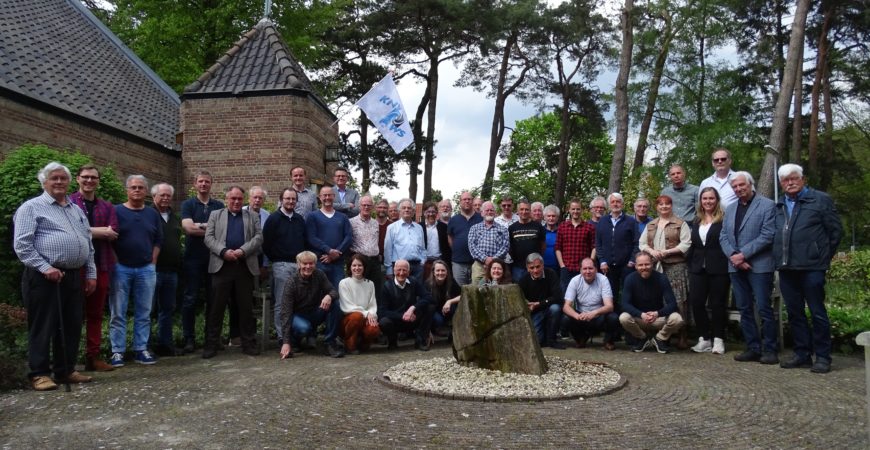
The Royal Netherlands Association for Meteorology and Astronomy (abbreviated in Dutch as: KNVWS) was founded in 1901. We carry a legacy of more than a century of supporting and promoting amateur astronomy and meteorology in The Netherlands.
The KNVWS was founded on the premise that science should be accessible to everyone. Dozens of associations and observatories are currently affiliated with our national organization. We connect thousands of people in our country and welcome tens of thousands of visitors every year. If you are looking for inspiring stories to listen to, measure the weather, or actively crawl behind a telescope to gaze at stars and planets; our member organizations are the place to be where you can follow your curiosity and gain more in-depth knowledge. Together we make meteorology and astronomy accessible to everyone.
Oldest popular scientific association
The Netherlands Association for Meteorology and Astronomy (NVWS) was founded on 1 September 1901. We are the oldest popular scientific association in The Netherlands, aimed at the general public. After our centenary, we were bestowed the predicate ‘Royal’ by Her Majesty Queen Beatrix in 2002, becoming the Royal Netherlands Association for Meteorology and Astronomy (or: KNVWS). Today, the KNVWS is a national umbrella organisation consisting of 59 amateur organizations and public observatories. We have a combined membership of 5.225 and welcome over 92.000 visitors on a yearly basis.
What we do
Our aim is to practise and disseminate meteorology and astronomy through science popularisation. As a national umbrella organisation we try to achieve this through:
- Stimulating and supporting the activities of affiliated organisations;
- Organising meetings and symposia;
- Contributing to the publishing of a magazine;
- Promoting observations and research by members of affiliated organisations;
- Cooperating with similar organisations nationally and internationally;
- Fostering the cooperation with professional meteorology and astronomy.
Our member organisations
Thanks to their broad geographic coverage of The Netherlands, we have a national reach. The main types of organisations and their characteristics can be summarised as follows.
- Local associations – organise lectures, excursions etc. Activities are focused on members (amateur astronomers and alike) and the ‘deepening of knowledge’.
- Public observatories – Mostly oriented towards observing and they tailor their events to the general public, making them the ‘regional hubs’ for experiencing astronomy.
- Thematic organisations – Specialised and collaborate on a specific theme, catering to beginners and more advanced observers. These ‘working groups’ have a national reach and focus.
Our events
Through national events we aim to bring the general public and novice into contact with amateur astronomy and the community in their region. We organize nationwide events such as the National Stargazing Days: an annual ‘star party’ that takes place during a weekend early in the year, with tens of locations across the country. It started in 1976 by ‘De Koepel’ and in 2014 the KNVWS took over the organisation. It is the longest running public astronomy event in The Netherlands (45+ years). In 2018 we had a record-breaking year exceeding 15,000 visitors.
In 2019 we launched a brand new nation-wide event, the National Solar Sunday. It aims to promote solar astronomy towards the next maximum of the solar cycle. Akin to the national stargazing days, the public can visit tens of locations across the country on the first Sunday in July to catch a safe glimpse of our Sun.
Opportunities for academia
We believe that the KNVWS can also fulfill a role in the knowledge chain from academia to the general public. If you are a university student, PhD, postdoc or staff member of a meteorological or astronomical institute, know that you can contribute by:
- Lectures aimed at the general public, but also via in-depth talks for knowledgeable amateurs. An excellent training in public speaking or outreach opportunity for you research: you can register as a speaker for the ‘speakers list’, which is accessible to affiliated associations and public observatories.
- Write and publish articles in the national astronomy magazine ‘Zenit’. Ideal to hone your skills in popular scientific writing.
- Pro-am collaborations with highly-skilled ‘amateur’ observers. These can include meteor astronomy, variable stars, stellar occultations, planetary observations, supernova follow-ups etc.